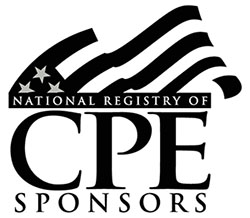
A Three-Day Classroom Seminar (CPE Approved)
Register Soon to get Early Bird Pricing.
This three day classroom seminar on liquid pipeline hydraulics covers the steady state transportation of liquids in pipelines. These include water lines, refined petroleum products and crude oil pipelines. This course will prove to be a refresher in fluid mechanics as it is applied to real world pipeline design. Although many formulas and equations are introduced, we will concentrate on how these are applied to the solution of actual pipeline transportation problems.
Register today for this fast-paced three-day classroom seminar and get the solid foundation you need.
- Understand liquid properties and how they vary with temperature and pressure.
- Understand different pressure drop formulas and their application in various systems
- Determine the number of pumping stations required in a long distance pipeline and how their locations can be optimized.
- How to model pipelines transporting two or more different liquids simultaneously.
- How pumps are selected to optimize performance when pumping different products.
- Understand various methods of increasing the throughput in pipelines using drag reduction agent (DRA) and looping existing pipelines
- Compare the cost of building facilities of pipe loops versus additional pump stations.
- Understand how pipeline pressures and horsepower are determined while batching various petroleum products with and without DRA.
- Understand the effect of sudden flow stoppage due to a valve closure and the resulting transient pressures and how they are controlled within allowable code limits.
- Summary of different case studies of various companies, pipeline expansion projects and how they are economically expanded.
- In conjunction with pipeline economics understand how the operating costs, capital costs and various financing scenarios are utilized in determining transportation tariffs as allowed by Regulatory Agencies.
Day 1
Fluid Properties
Mass, Density and Volume
Specific Gravity and API gravity
Viscosity - Absolute and Kinematic
Vapor Pressure and Bulk Modulus
Sample Problems
Â
Pressure Drop Due To Friction
Volume flow rate and velocity
Pressure and Head of Liquid
Laminar, Turbulent and Critical Flow
Reynolds Number and Friction Factor
Pressure Drop Equations
Darcy, Colebrook-White, Hazen-Williams and Shell-MIT Equations
Losses through fittings and valves
Sample Problems
Â
Pipe Analysis
MAOP and Test Pressures
Barlow's Equation
Line Fill Volume
Sample Problems
Â
Pressure Required to Ship Product
Hydraulic Gradient
Friction Head and Elevation Head
Slack Line Flow
Sample Problems
Â
Horsepower Required
HP Calculation
Hydraulic horsepower vs Brake horsepower
Sample Problems
Â
Number of Pump Stations Needed
Hydraulic Balance and Stations Required
Sample Problems
Â
Day 2
Pump Analysis
Centrifugal Pumps vs Reciprocating Pumps
Pump Head vs Flow Rate
Pump Efficiency vs Flow Rate
BHP vs Flow Rate
Pump Curve Analysis
Variation with Impeller Speed and Diameter
NPSH required versus NPSH Available
Effect of Viscosity
Sample Problems
Â
Pump Station Design
Suction Pressure & Discharge Pressure
Control Pressure & Throttle Pressure
HP Lost due to Throttling
Variable Speed Pumps
Sample Problems
Â
Drag Reduction Effect
Reduction in Friction due to DRA
Drag Reduction versus ppm of DRA
De-bottlenecking Pipelines
Sample Problems
Â
Â
 Batching different products
Transporting different products
Effect on hydraulic gradient
DRA effect
Contamination in Batches
Sample Problems
Â
 Transient Flow in Liquid pipelines
Surge pressures due to valve closure
Application of PRV and rupture disk
ANSI 150 terminus piping protection
Â
Â
Day 3
Â
 Case Studies of company pipelines
Â
 Summary - Q&A
Â
- Additional attendees and government employees receive a 10% discount.
-
Register 4 or more attendees and receive 20% Off.
Special pricing is available for groups of 5 or more.
If you want attendees to pay with separate credit cards or have other questions, please call (440) 853-1038 for assistance.
This live group seminar is eligible for 20.0 CPE credits. Be aware that state boards of accountancy have final authority on the acceptance of individual courses for CPE credit. As of January 1, 2002, sponsored learning activities are measured by program length, with one 50-minute period equal to one CPE credit. One-half CPE credit increments (equal to 25 minutes) are permitted after the first credit has been earned in a given learning activity. You may want to verify that the state board from which your participants will be receiving credit accept one-half credits.


The Global Association of Risk Professionals (GARP) is a not-for-profit membership association dedicated to preparing professionals and organizations for making better-informed risk decisions. GARP's membership represents more than 150,000 risk management practitioners and researchers at academic institutions, banks, corporations, government agencies, and investment management firms in 195 countries and territories. GARP administers the Financial Risk Manager (FRM) and Energy Risk Professional (ERP) Exams – certifications recognized by risk professionals worldwide. Visit www.garp.org/cpd.
This seminar will benefit a wide variety of organizations in the water, chemical and oil and gas industry, who are responsible for the design, construction, maintenance and operation of water, chemical and petroleum pipelines. Additionally business and planning personnel will also benefit from the economic aspects covered in the course.
Familiarity with fluid mechanics and liquid properties.
PGS seminars are known for their clear explanations and in-depth content. Register for a PGS class today, and join the over 10,000 energy professionals who have already attended one of PGS's proven programs.
